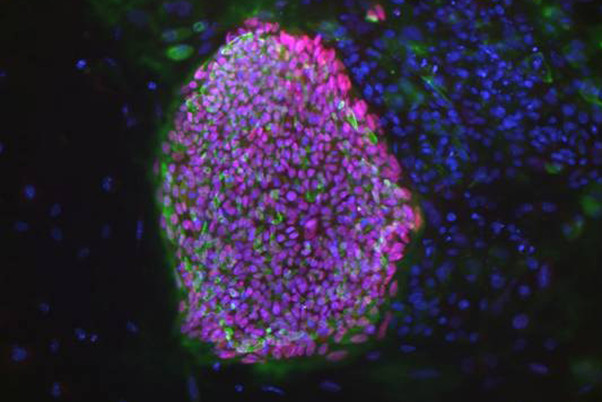A new study holds much promise for diabetics. Researchers at the New York Stem Cell Foundation reported that they had created an embryonic clone of a 32-year-old woman with diabetes, extracted healthy stem cells from the clone, and then modified those cells to produce insulin.
The long-term goal of the research team led by Dieter Egli is to transplant new insulin-producing cells back into a patient and treat diabetes. The disease occurs when the body’s natural ability to produce insulin is impaired. Because the genetic composition of the transplanted tissue is identical to that of the patient, rejection would not occur. This study falls on the heels of one published earlier this month in which a different research team used a similar approach to make fresh tissue from adults for the first time.
In the latest study, the investigators placed the patient’s DNA into a human ovum (egg) that had its own DNA removed. The egg activated the patient’s DNA and created an embryonic clone of the patient; this was a microscopic clump of healthy stem cells, which have the potential to become all other cells in the body. With further manipulation, the investigators transformed the stem cells into insulin-producing beta cells. This procedure is far less controversial than extracting stem cells from surplus embryos created via sperm and egg in fertility treatments; opponents of this process claim that destruction of an embryo is comparable to destroying a life.
The next phase of the research is to transfer the freshly made beta cells into mice to determine how stable and safe they are; in addition it will determine whether the procedure can cure diabetes in the animals. They note that years of additional animal experiments will be required before the same approach can be tried in humans because some major hurdles will need to be addressed.
This type of research began in 2006; it had the goal of producing fresh tissue for patients with type1 diabetes, which is typically occurs in children and young adults. The disease is believed to be the result of a malfunctioning immune system that attacks and destroys the insulin-producing beta cells. Unlike the more common type 2 diabetes, the onset of type 1 diabetes is probably triggered by genetic and environmental factors, rather than diet or lifestyle; thus, it cannot be prevented.








